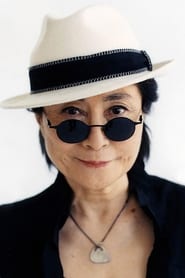Yoko Ono plays with our sense of anticipation by constructing a metaphor for the liberation of the female body and self.
Full Cast of Freedom

Yoko Ono
Woman
Yōko Ono is a Japanese artist, musician, author and peace activist, known for her work in avant-garde art, music and...
Crew of Freedom
Full backstage crew list →- Released on December 01, 1970